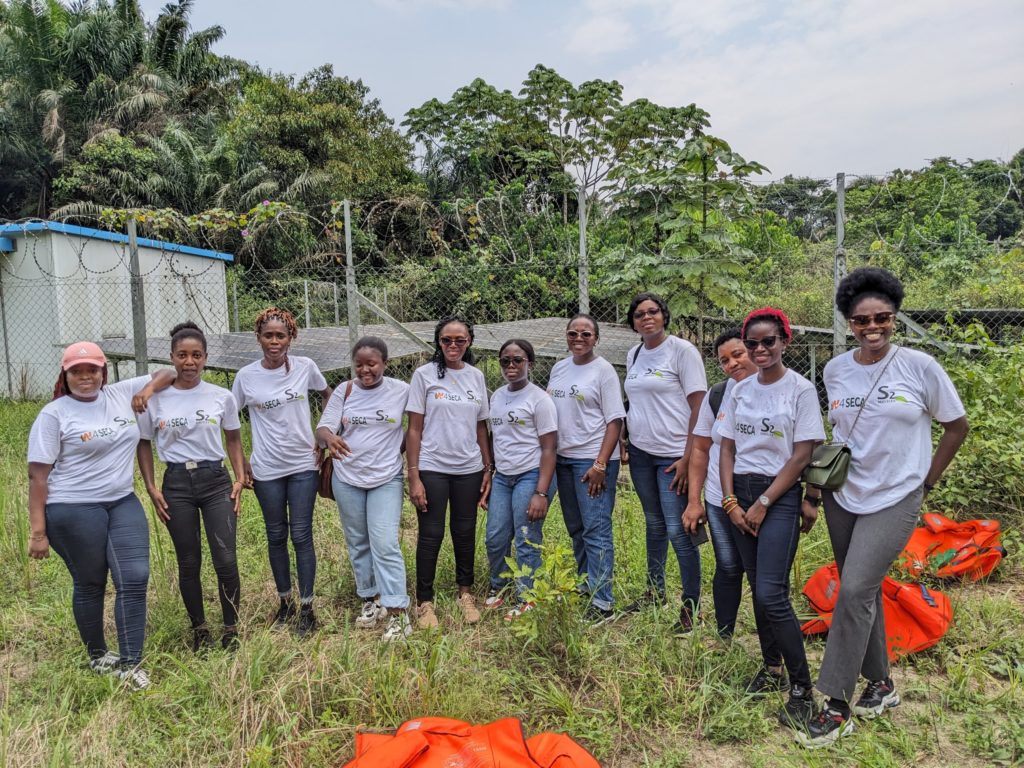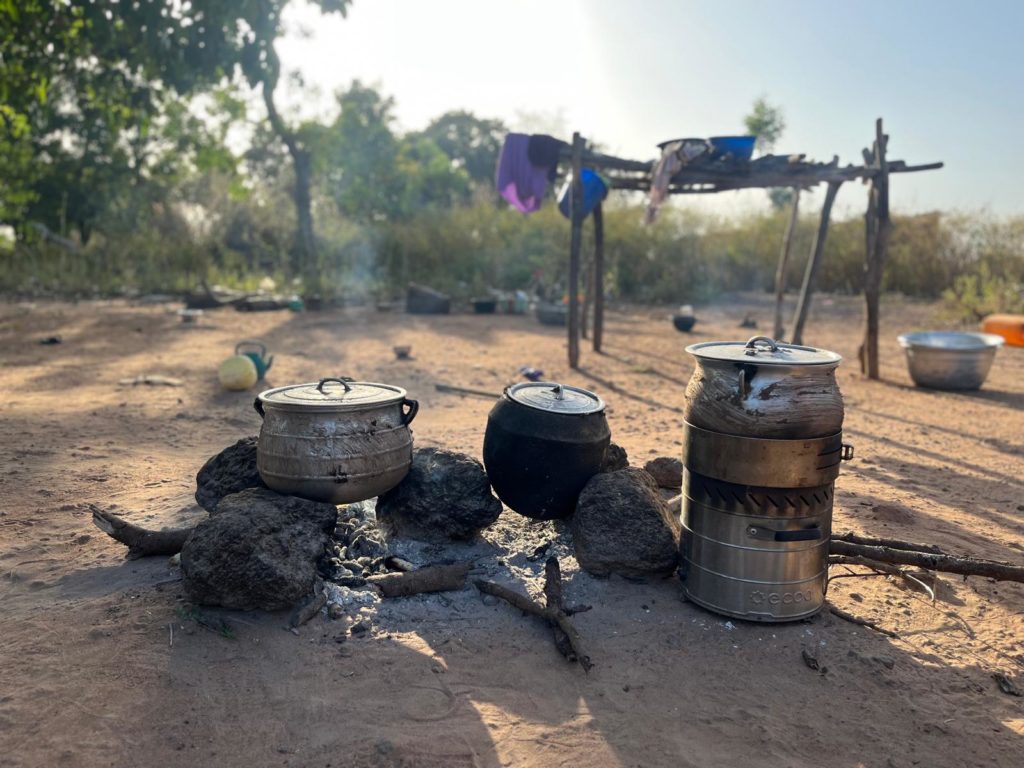
Although women play a crucial role in environmental sustainability and climate action, they often remain invisible in decision-making processes. Carole Tankeu, Associate & Managing Director of S2 Services SAS and Founder of Women for Sustainable Energy & Climate Action association, is working on changing that. With over 20 years of experience in sustainability, urban management, and gender inclusion, Carole has dedicated her career to ensuring that women are at the forefront of environmental initiatives across Africa.
In this interview conducted by hummingbirds, she shares her journey, the challenges women face in the environmental sector, and the steps needed to bridge the gender gap.
It started when I studied in Canada and was deeply inspired by their strong environmental consciousness. Later, in Kenya, I was even more motivated by ecotourism, green businesses and Wangari Mathai Legacy. And Nairobi is one of the greenest city in Africa.
Moreover, later, in Kenya, I was struck by how many women were visible in the energy and climate sectors, far more than in Western and Central French-speaking Africa. That’s when I realized that women were present in the field, but they weren’t visible. And if you’re not visible, you don’t have access to opportunities.
This realization led me to create “Women for Sustainable Energy & Climate Action” to amplify their voices and drive gender-inclusive environmental solutions in Central Africa.

AIn some African countries, the issue is not a lack of education. In Cameroon, for example, many women pursue scientific careers, but few reach leadership roles. This is where the paradox lies: educated women are present in the workforce but remain excluded from decision-making roles. So the issue isn’t related to lack of training, but more about cultural and structural barriers.
In many other African countries, women are not studying Science,Technology, Engineering and Mathematics (STEM) because the belief is that they belong elsewhere or because they don’t allow themselves. The key is to create an environment where women are motivated to choose STEM. Promoting STEM to young girls in order to encourage them to pick up scientific majors and create opportunities to show them some inspiring female role models who embraced careers in sciences, technologies and engineering and to answer questions on how they manage to juggle personal and professional life.
Yes, many times, I had to endure sexist remarks and did not speak up. At some point in my early career, in a technical role, most of the time, men assumed I wouldn’t be able to handle technical work. I faced skepticism and had to prove myself repeatedly, although my philosophy remained to let my work speak for itself.
In Kenya, I noticed that women are more assertive, standing out early in their careers. In Central Africa, women tend to stay in the background, because there are fewer professional opportunities, as well as deep-rooted cultural taboos, like talking about monthly periods or sexual harassment – and too much to loose if they talk about it.
I’m proud of having created the association of course, but also, and maybe even more, of having worked on significant projects for the city of Douala, especially projects linking health and the environment, such as improving sanitation in schools. These kinds of projects have a real impact. The fact of working for a city is very exhilarating, you have the feeling that you’re contributing to something important.
Women are responsible for so much in Africa. They are the pillars of households, they manage childcare, education and agriculture. Yet, decisions affecting them are often made by men without their input.
To tackle this pattern, it’s fundamental to involve women from the first stages of Nature-based solutions or clean cooking carbon projects, so that we can hear their voice. In fact, most natural ecosystems restoration projects are mainly relayed by women’s communities, who are the ones in charge of planting trees, taking care of the nurseries, etc. Women-led initiatives scale more effectively because women will mobilize others. When they are included, the entire community benefits.
One of the biggest issues is to set up the right communication channels that will enable women to express themselves. Stakeholder consultations often involve only men (the local religious authority, male farmers, and administrative authorities) without hearing any woman’s voice.
To change this, we need practical gender-sensitive approaches. We need to understand socio-cultural context at a regional level and consider women’s lifestyles to first ensure that they are present. If you hold your public consultation while they are cooking or working in the fields, of course they won’t be there! Also, we need to ensure that women can speak safely. This generally happens through focus group discussions including women only. Fair and inclusive project design lies in seeing the role of women in the community.
Maybe I will start by thanking hummingbirds that put a lot of trust in us to collaborate for the development of this project. Many partners don’t dare putting all their money in the hands of an Africa-based and African-owned business like ours.
Clean cooking initiatives often struggle to gain visibility and funding, despite the health-related damages that cooking with traditional stoves have in women’s and children’s health. In many African communities, men don’t care about how food is prepared, as long as it gets to the table.
Even globally speaking, cooking challenges receive far less attention than other energy solutions like solar panels or wind turbines, despite many studies that have helped us understand the dangers. Then again, as this issue is not very visible, it is hard to convince people to change practices, to lead attention to it. That’s why we need to educate on why clean cooking matters.

First and foremost, political leadership is critical. Laws and policies exist, but without strong leadership, they don’t get enforced. Education and awareness raising are fundamental as well. In Central Africa, many people still see gender equality as a “Western concept”. We need to show that it benefits entire communities, not just women.
By supporting initiatives led by women! Women often struggle to get funding and visibility so supporting their projects makes a real difference.
I would also encourage woman to speak up more about their experience in the professional world. It’s important for young girls and women to see what other women are doing and have role models to look up to. I find it such a pity that there are so many brilliant women doing extraordinary things but not sharing, preferring to remain quiet, which doesn’t necessarily encourage others.
We must speak. I do it, even if this is not my favorite exercise, but it’s necessary.
I realize this is a chance to be involved in ambitious clean cooking or energy projects. If there were more projects like this, we would all be better off! My key message? Get involved!
Carole Tankeu’s work highlights the critical intersection of gender, environment, and climate action. By ensuring women are active participants, we can build more inclusive and effective environmental solutions. At hummingbirds, we’re committed to supporting projects that empower women and communities for a more sustainable future.You can also follow and support Carole Tankeu initiatives here: www.linkedin.com/company/w4seca/